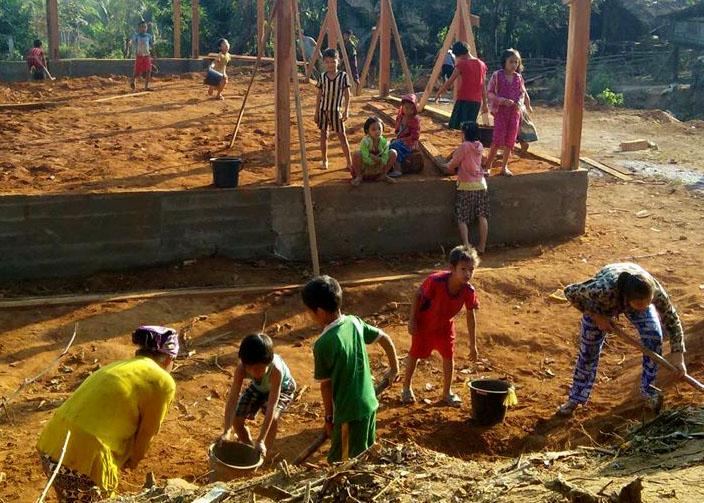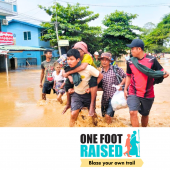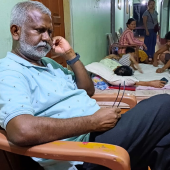Myanmar ratifies commitment to address child labor

Myanmar confirmed its commitment to address child labor by ratifying the International Labor Organization’s Minimum Age Convention on June 8, days ahead of the observance of World Day Against Child Labor on June 12.
The move has been heralded as a positive development, particularly in the context of the current COVID-19 crisis, which threatens the rights, safety and development of the estimated 1.13 million children in child labor across the country.
The Minimum Age Convention 138 requires countries to set a minimum age aligned with the end of compulsory education and under which no one shall be admitted to work in any occupation except light work and artistic performances.
It also prohibits hazardous activities for anyone under 18 years old.
In Myanmar, the minimum working age is 14 years old as per the new Child Rights Law and existing Labor Law.
The Convention requires countries to establish national policies for the elimination of child labor.
Myanmar is the 178th country to ratify the convention and has an estimated 9.3 percent of child population aged 5 to 17 in child labor, including more than 600,000 working in hazardous work environments.
According to a new report by the ILO and UNICEF, the 153 million children trapped in child labor around the world are at risk of entering hidden and more dangerous forms of work or working longer hours due to COVID-19.
Loss of livelihood, an illness or death in the family, displacement, and the raft of upheavals which are driving children out of school, orphaned or in financial troubles, are some of the COVID-19 related factors that are pushing millions of vulnerable children – even those at a very young age – to work in hazardous conditions.
As of May 2020, more than 60,000 people have already lost their jobs in Myanmar; and as the crisis continues, deeper cuts in workers’ salaries or more employment terminations are expected to occur.
The ILO, UNICEF and partners are using the World Day Against Child Labor to draw attention to the importance of vigilance and a coordinated response to protect vulnerable children from the pandemic’s far-reaching economic and social impact.
Donglin Li, ILO liaison officer, called for continuous action and support to ongoing national efforts in combatting child labor.
“There is significant momentum towards preventing and eliminating child labour in Myanmar as it has implemented the National Action Plan on Child Labor and ratified the ILO Convention 138 on the minimum age on 8 June,” Li said.
“We must overcome the current COVID-19 crisis and work together to continue and reinforce the momentum to achieve Target 8.7 of the Sustainable Development Goals on elimination of child labour by 2025.”
“As we fight the impacts of COVID-19 together, we must provide additional protection for children so they are not put in a situation where they are forced into the most dangerous forms of labour, that push them to miss school and impair their health and well-being,” said Alessandra Dentice, deputy representative of UNICEF in Myanmar.
“We need integrated approaches that strengthen child protection systems and simultaneously address poverty and inequity, improve access to and quality of education and inform and mobilize the public to respect children’s rights,” she added.
As part of this year’s World Day Against Child Labor campaign in Myanmar, the Ministry of Labor, Immigration and Population, in collaboration with the ILO, and in partnership with the Embassy of Switzerland, are organizing a series of events throughout Myanmar until September 30.
Photo exhibitions in the Central Railway Station, Dala Ferries and Junction City will open on June 15, while online campaigns and awareness raising activities across various states and regions will take place over the coming months.
Source: The Global New Light of Myanmar
Radio Veritas Asia (RVA), a media platform of the Catholic Church, aims to share Christ. RVA started in 1969 as a continental Catholic radio station to serve Asian countries in their respective local language, thus earning the tag “the Voice of Asian Christianity.” Responding to the emerging context, RVA embraced media platforms to connect with the global Asian audience via its 21 language websites and various social media platforms.














